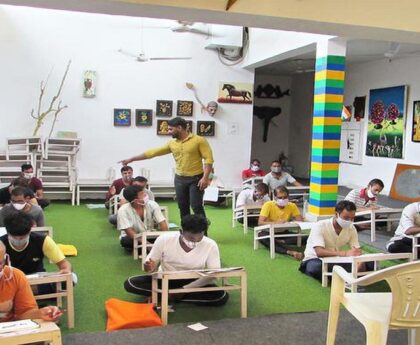Learning foreign languages: the school as cement
For most French children, it is at school that their first contact with a foreign language is made. In the form of awakening in kindergarten or lexicon learning in primary school, it is at this time that interest in learning foreign languages must be initiated.
Create a need in the learner
Thus, it is necessary to “ ensure that certain (…) factors are present during learning so that a young person, whatever their origin and age, manages to master the languages that will be important for them later ( …) ” according to François Grosjean, honorary professor and former director of the language and speech processing laboratory at the University of Neuchâtel. In other words, the child’s learning must enable him to master, in addition to his national language, the languages that will later enable him to travel or carry out his professional life.
For this, a need must be created in the learner, accompanied if possible by motivation, to encourage him to progress in the language in question, through written or oral communication. Learning a foreign language should be more than a school subject: it should be seen as a means of communicating and building one’s future. Indeed, the need to use another language is the basis of plurilingualism, when a person forms a relationship with a person speaking another language, or when one goes to work abroad for example. It is this need that must be developed in language teaching.
Provide a solid foundation during schooling
For François Grosjean, the school “currently bears a very (too?) large part of the burden leading to language learning for a child ”. With too many children per class, limited means and too few lesson hours, the conditions are not optimal to ensure quality teaching adapted to each level. However, this teaching must provide students with solid linguistic foundations that can be extended and put into practice when the child has to use these languages. Other approaches to consolidate acquired knowledge, such as immersion programs or school exchanges, should also be encouraged to raise the oral level of the French language .
An interest to cultivate outside of school
The work of linguist Barbara Abdelilah-Bauer reveals that a child needs at least 2,700 hours of exposure to a language to achieve a sufficient level of fluency. However, in France, students are in contact with the language for “only” 756 hours after three years of schooling. The entourage, and the different actors of education must therefore commit to support the learning of a foreign language outside of school, using various media and over a long period.
The family, in particular, plays a major role in the success of this learning. She must show a positive attitude towards the study of languages and avoid criticizing or denigrating certain languages learned. “ How many children say they don’t like a particular language – often a national language – because they have heard a parent or close friend criticize it? asks François Grosjean. Indeed, a language that is mocked, “devalued” by the family circle will potentially be set aside by the young learner. On the contrary, if learning is valued and encouraged, the child will be all the more eager to continue to discover the language and use it. The family can also contribute to the assimilation of the language through language stays, meetings with other families, au pair stays. Exchanges that are changing with the appearance of social networks and online conversation sites and software, making it a little easier to have conversations with people on the other side of the world, without leaving home. A way, if needed another, to encourage learners in their progress and to improve the language level of French people.





